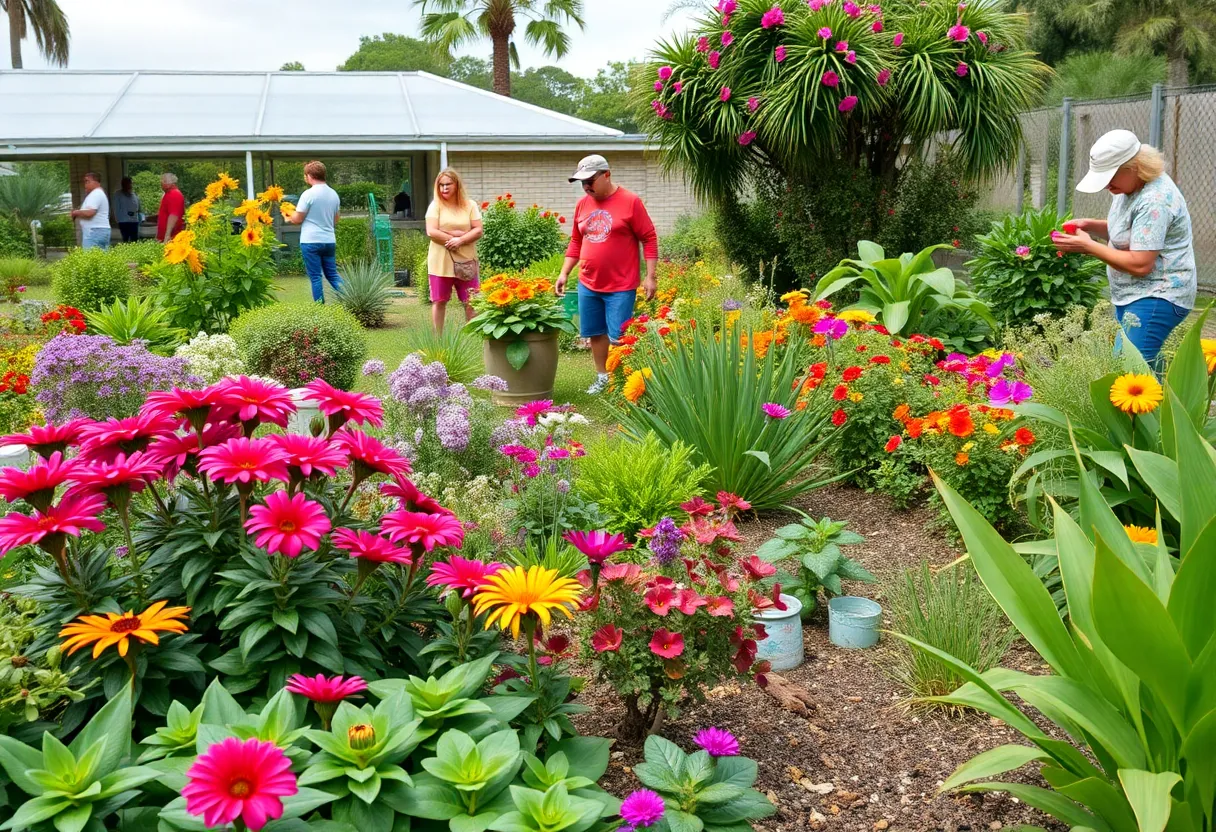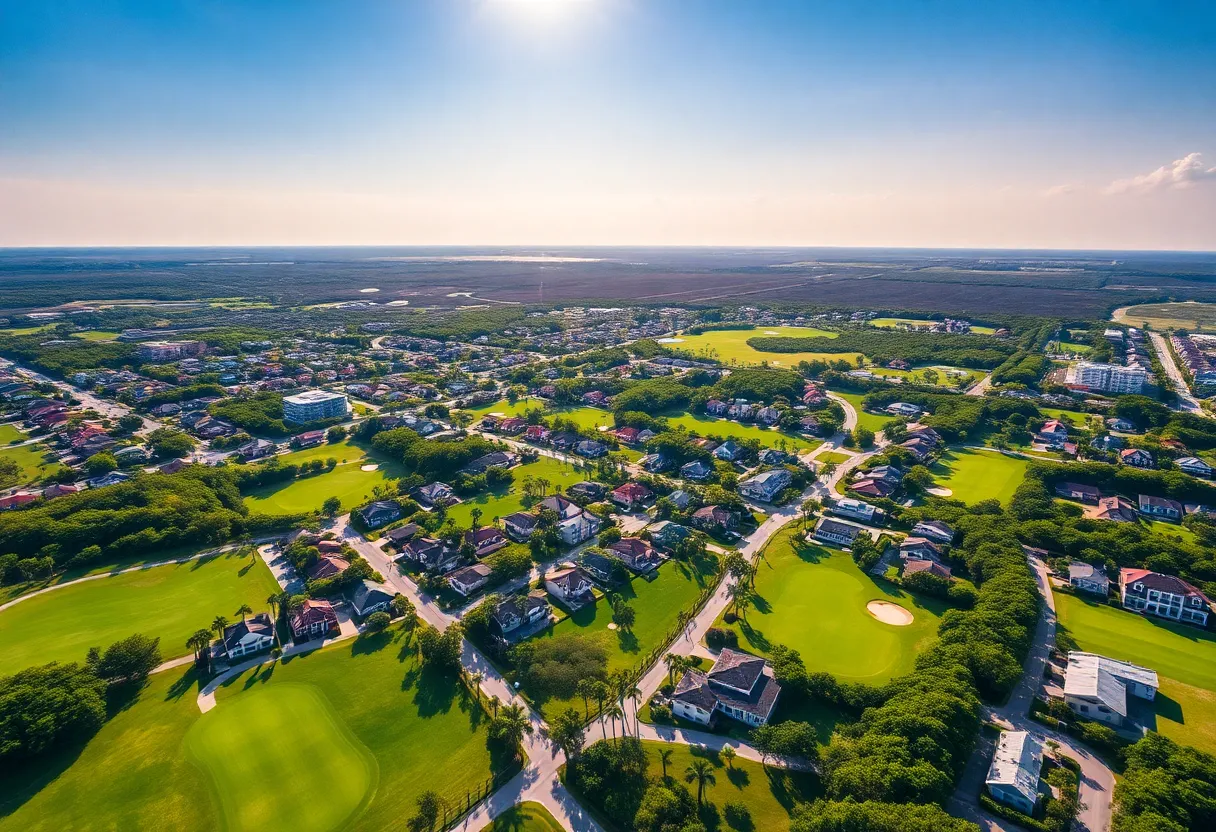News Summary
In Orlando, a growing number of residents are incorporating native plants into their gardens, promoting biodiversity and reducing environmental impact. This movement supports local ecosystems, helps pollinators like bees and butterflies, and can increase property values. Resources are available through the University of Florida IFAS Extension, and events like the Backyard Biodiversity Day encourage community engagement in sustainable practices. With the establishment of educational gardens, more residents are being educated on the beauty and ecological benefits of native flora, which also helps combat invasive species in Florida.
Orlando, Florida is witnessing a growing movement among residents who are turning to native plants in their gardens to enhance biodiversity and reduce environmental impacts. As many new Floridians discover, understanding and integrating these native species into landscaping can significantly benefit both the local ecosystem and individual properties.
According to experts, rewilding yards and gardens plays a crucial role in fostering Florida’s native flora and fauna. Residents are encouraged to plant native flowers that provide essential nectar and pollen for local bees, butterflies, and other pollinators. The Florida Wildflower Foundation recommends various flowering native plants like Black-eyed Susans, Coreopsis (the state wildflower), Blanket flower (gaillardia), Liatris (blazing star), Spiderwort, Stokes’ aster, Horsemint (bee balm), and Salvia (tropical sage). Notably, the coontie, North America’s only native cycad, is vital for the survival of the nearly extinct atala butterfly.
Integrating native shrubs such as beautyberry and the non-caffeinated native coffee plant (Psychotria nervosa) adds additional layers of ecological benefits. For those interested in caffeinated options, yaupon holly (Ilex vomitoria) is the only naturally caffeinated plant found in North America. Additionally, large native trees like southern magnolia, live oak, bald cypress, and American sycamore are promoted through initiatives like Orlando’s Free Street Tree program.
The University of Florida IFAS Extension office offers resources and classes tailored to Florida-friendly and native plant gardening, ensuring that residents have the knowledge needed for successful landscaping. For more specialized needs, the Audubon Park Plant Nursery provides a variety of native and Florida-friendly plants, while “Orlando Native Plants, An Urban Nursery” in Colonialtown North offers plants by appointment.
On October 18, the Tarflower Chapter of the Florida Native Plant Society will host a Backyard Biodiversity Day at Mead Garden in Winter Park. The event will feature native plants for sale, expert presentations, interpretive hikes, eco-conscious vendors, kids’ activities, food trucks, and live music. This event gives residents an opportunity to deepen their understanding of native plants and their contributions to local ecosystems, particularly as fall is recognized as an ideal time for planting.
While native plants significantly support local wildlife, the presence of invasive species poses risks to native ecosystems. Invasive plants, defined as non-native species that disrupt local flora and fauna, are listed and regulated by the Florida Department of Agriculture. The Florida Invasive Species Council provides educational resources and maintains a biennial invasive species list to help homeowners make informed choices regarding their landscaping. Only plants on the Noxious Weed List are prohibited from sale in Florida nurseries, making it crucial for residents to consult the UF/IFAS Assessment for understanding the invasiveness of non-native plants.
The establishment of the new Florida Native Plant Education and Demonstration Garden at the Vero Beach Main Post Office, organized by the Pelican Island Audubon Society and the Eugenia Chapter of the Florida Native Plant Society, serves to illustrate that native plants are not only beautiful but also environmentally friendly. With over 179 Florida native plants of eight different species planted at this garden, residents can explore examples of garden design incorporating native flora.
Opting for native plants over traditional lawn grass can save considerable amounts of drinking water and reduce pollution, aligning with ecological conservation efforts. Additionally, native plants have been shown to enhance property values by approximately 5 to 20 percent. As Florida residents embrace these sustainable practices, the movement is likely to expand, further benefiting the environment and local biodiversity.
Residents interested in acquiring native plants can visit the Audubon House nursery in Vero Beach, where they can also receive free tree saplings, supporting the growth of Florida’s native ecosystems.
Deeper Dive: News & Info About This Topic
HERE Resources
Upcoming Community Events in Central Florida
Baldwin Park Secures Funding for New Public Park
Super Nintendo World Opens at Universal Orlando
Orlando Health Launches Advanced Spine Center
28th Annual Leu Gardens Plant Sale Takes Over Orlando
Orlando Hosts Inaugural PlantCon International Convention
Former Golf Courses Transform into Biodiversity Havens
Explore Central Florida’s Vibrant Birdwatching Scene
Community Events in Orlando February 2023
Somabay Golf Becomes Egypt’s First GEO Certified Course
Additional Resources
- Your Community Paper: Bringing Nature to the City
- Jacksonville.com: What Does Invasive Plant Mean?
- TCPalm: Pelican Island Audubon Plants Eco-Friendly Garden
- WHEC: Golden Lion Tamarin and Sloths at Palm Beach Zoo
- Tallahassee.com: Invasive Vines Create Ecological Disaster
- Wikipedia: Natural Habitat
- Google Search: Native Plants Benefits
- Google Scholar: Native Plants Ecology
- Encyclopedia Britannica: Native Plant
- Google News: Native Plant Movement

Author: STAFF HERE ORLANDO WRITER
ORLANDO STAFF WRITER The ORLANDO STAFF WRITER represents the experienced team at HEREOrlando.com, your go-to source for actionable local news and information in Orlando, Orange County, and beyond. Specializing in "news you can use," we cover essential topics like product reviews for personal and business needs, local business directories, politics, real estate trends, neighborhood insights, and state news affecting the area—with deep expertise drawn from years of dedicated reporting and strong community input, including local press releases and business updates. We deliver top reporting on high-value events such as Orlando International Fringe Theatre Festival, Megacon Orlando, and Central Florida Fair. Our coverage extends to key organizations like the Orlando Economic Partnership and Hispanic Chamber of Commerce Metro Orlando, plus leading businesses in leisure and hospitality that power the local economy such as Walt Disney World Resort, AdventHealth, and Universal Orlando. As part of the broader HERE network, including HEREJacksonville.com, HEREPetersburg.com, HERETallahassee.com, and HERETampa.com, we provide comprehensive, credible insights into Florida's dynamic landscape.




